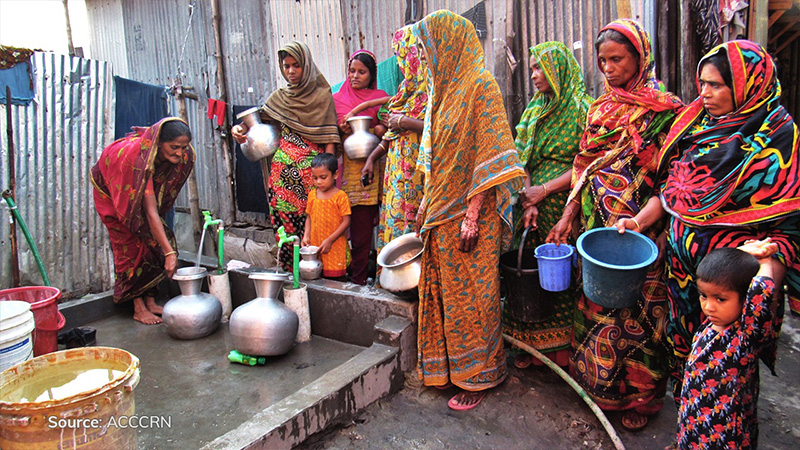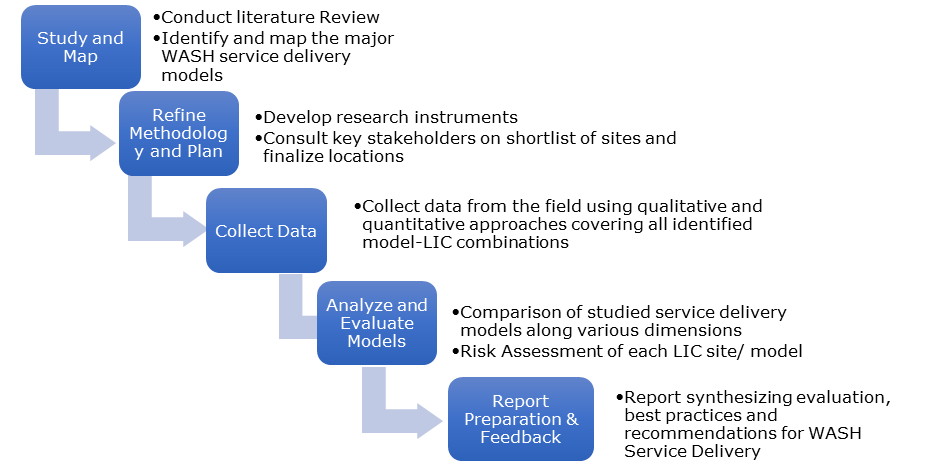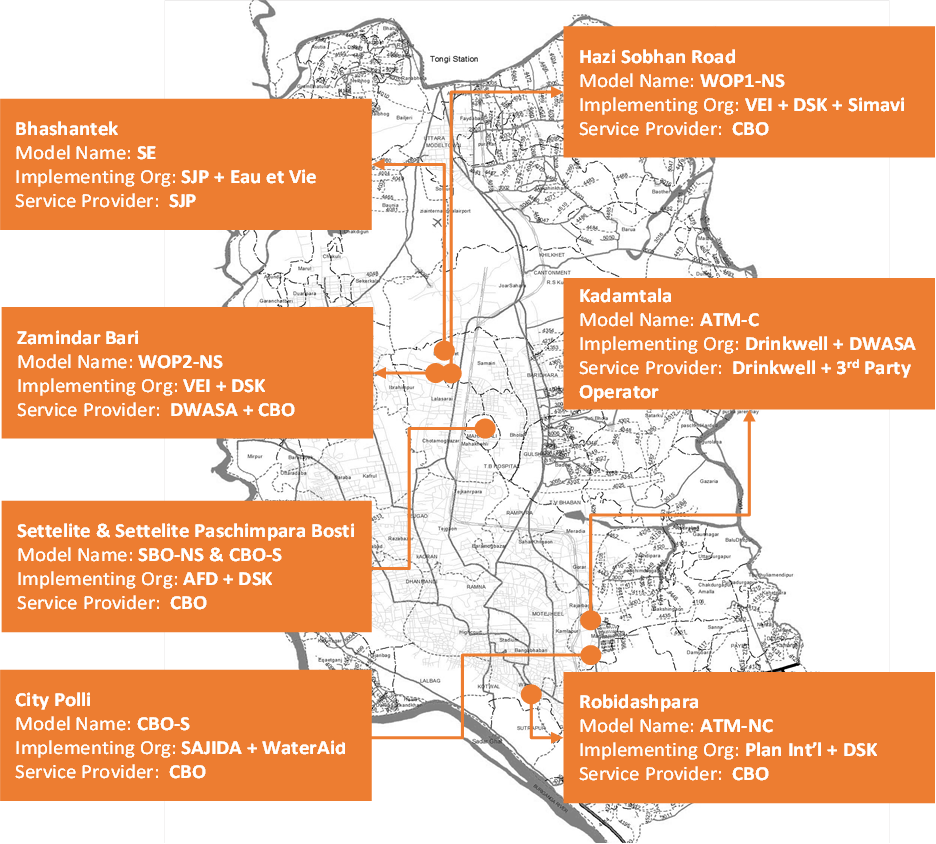GET IN TOUCH
- Please wait...

Dhaka is estimated to have 4 million slum dwellers spread over 5,000 LICs (UNICEF). Nearly 700,000 slum dwellers in Dhaka city’s 435 listed LIC areas are served by the DWASA networks through legal water connections. Safe water, appropriate sanitation facilities, and good hygiene practice are essential elements for a healthy life. However, a large majority of the Bangladeshi population cannot access safe drinking water, one of the most fundamental basic health services.
In order to mitigate this water supply problem within the LICs of Dhaka City Corporation, various NGOs (both local and international), social enterprises, and business enterprises along with some WASH networking agencies are working with multiple donors and Dhaka WASA (DWASA). They are implementing community-based projects which would provide access to safe water with legal connections to the households living in the LIC areas of Dhaka. Moreover, they are working on strengthening the capacity of the stakeholders and providing a sustainable solution to the community.
Realizing the importance of identifying the best WASH service delivery models to better reach underserved communities and improve existing programs and given the scarcity of comprehensive comparative research that looked at the feasibility and sustainability of WASH in LICs in the Dhaka region, the DWASA-VEI Water Operators Partnership (WOP) commissioned LightCastle Partners (LCP) to conduct this comparative research.
This study used a mixed-methods research approach to map existing service delivery models, consult stakeholders, evaluate model results, and make recommendations to WASH sector stakeholders, with the goal of identifying the relative strengths and weaknesses of seven established operational WASH service delivery models in Dhaka.

The project made use of a mixed-methods approach utilizing both quantitative and qualitative modes of investigation to collect primary data from the 7 selected LICs in Dhaka. In the course of the research, LIC residents were surveyed and interviewed, whilst key Informant Interviews were conducted with local operators/CBOs, and community leaders within LICs. Outside of LICs, representatives from development partners and NGOs relating to the selected sites and Dhaka Water Supply and Sewerage Authority (DWASA) were interviewed.

Based on the identified WASH Service Delivery Models, LCP has made an independent assessment of the relative effectiveness (quality of service, performance, and strengths and weaknesses of each model across multiple dimensions) and the longer-term sustainability and the feasibility of the different models used in the LICs of Dhaka by the various implementing organizations.
LCP has also assessed the risks regarding the financing and implementation of projects aimed at improving the water supply in LIC areas taking the contextual factors into account. For the performance evaluation of the selected service delivery models, it was decided to adopt and adapt the framework developed under the Triple-S initiative by IRC and Aguaconsult, at the request of USAID. The IRC framework was explicitly intended as a framework for general guidance, and chosen for its versatility was adapted to include an additional “Quality of Service” dimension with four constituent indicators. The WASH service delivery models evaluated under this study were found to have varying degrees of effectiveness in terms of performance.
After evaluating the WASH Service Delivery models, LightCastle provided recommendations and suggestions for best practices for DWASA and other WASH Sector Stakeholders in regard to the adoption and refinement of improved water service delivery models in Dhaka city LICs. It is hoped that the recommendations from the study will be pivotal in guiding the design of future LIC water service interventions in Dhaka city and create a culture of collaboration among the multitude of water service providers and stakeholders in providing more effective water services in Dhaka LICs.
The full report can be accessed here
Our experts can help you solve your unique challenges